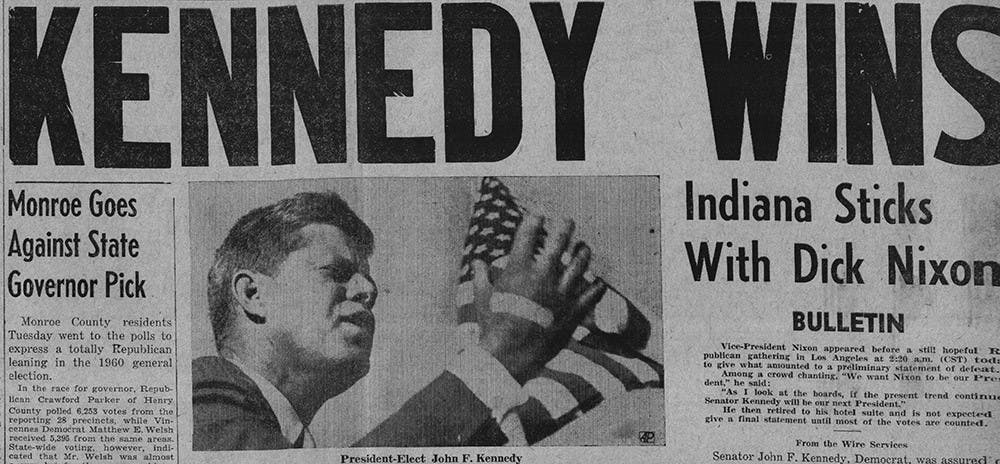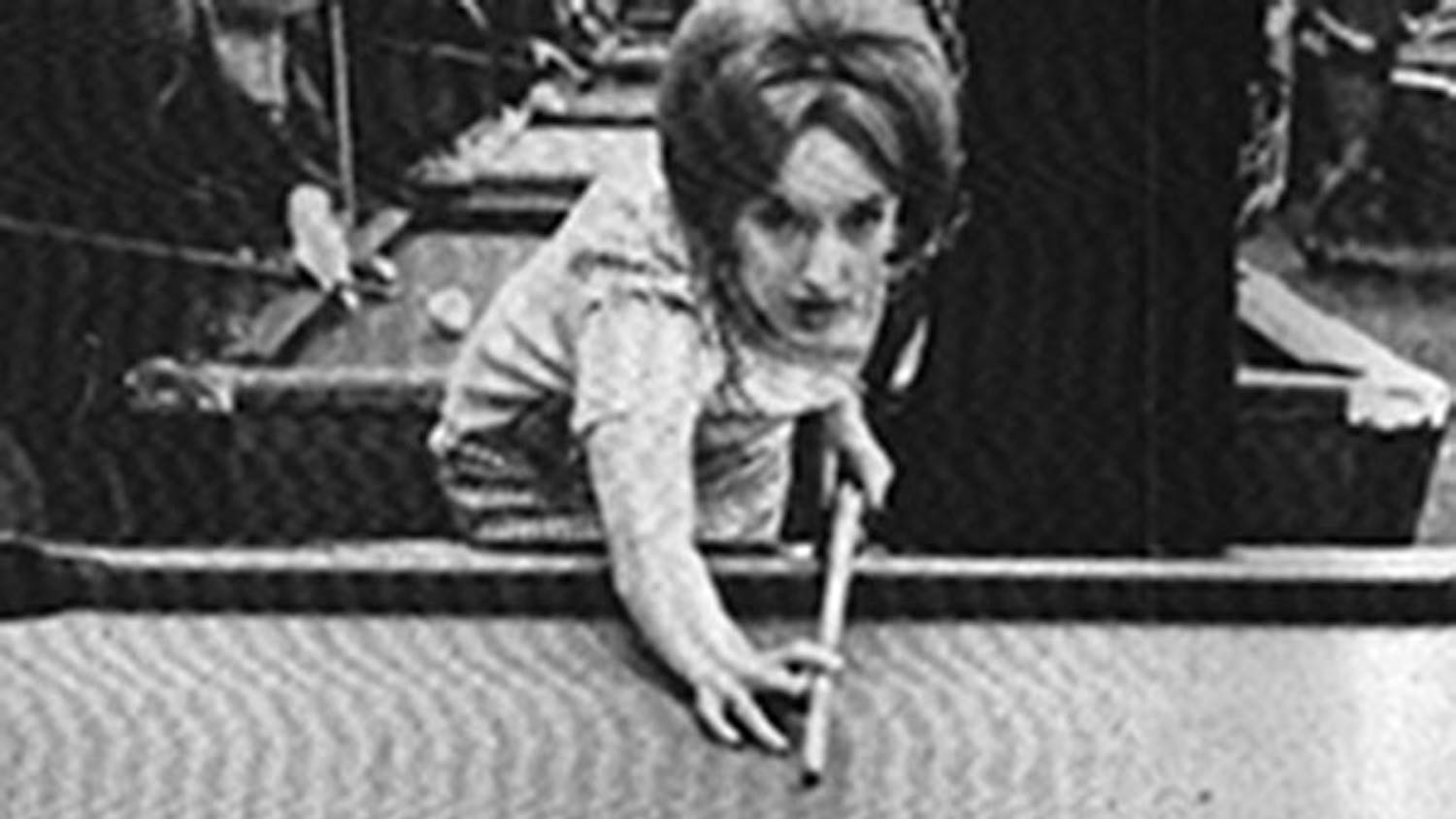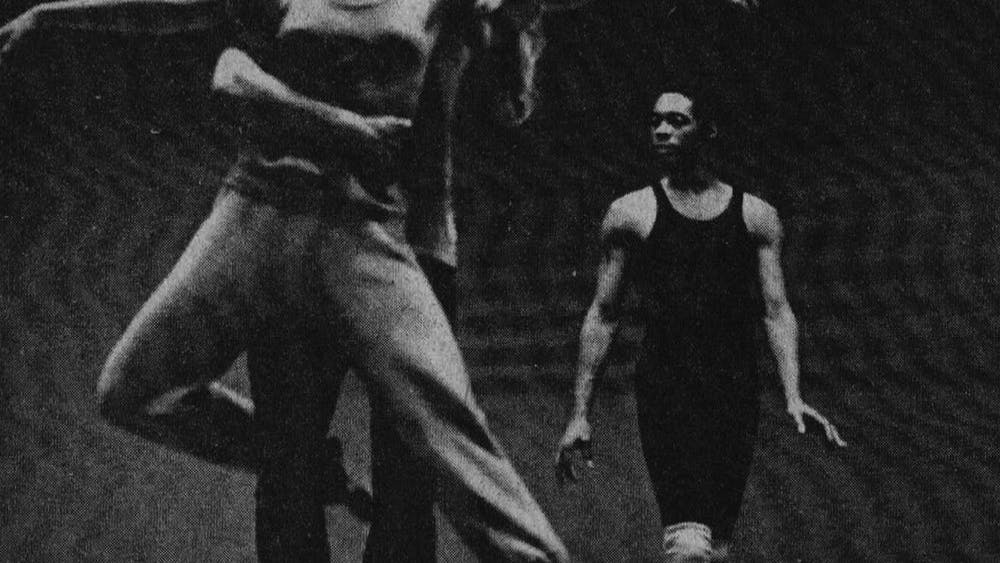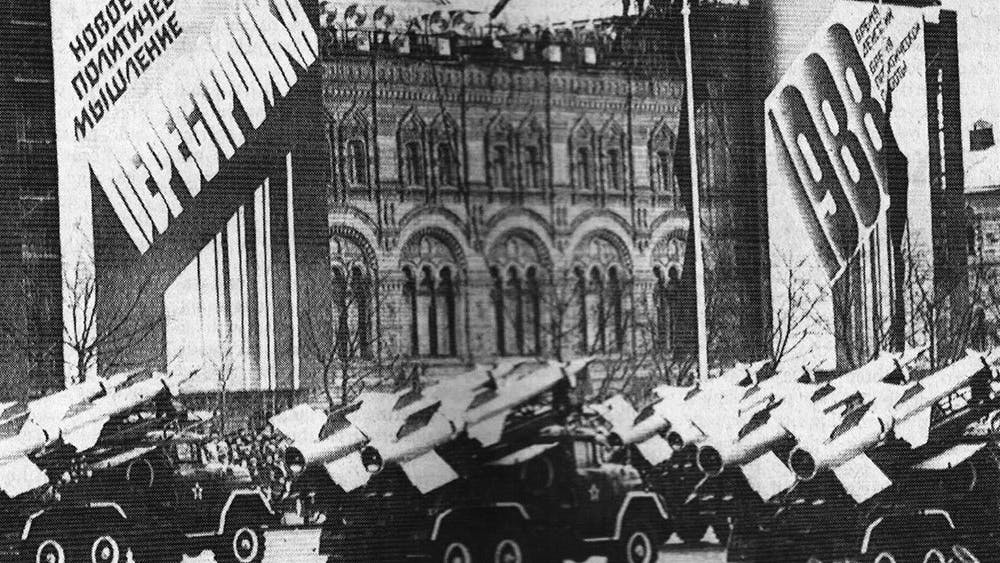Transcription:
Indiana Sticks With Dick Nixon
Vice-President Nixon appeared before a still hopeful Republican gathering in Los Angeles at 2:30 a.m. (CST) today to give what amounted to a preliminary statement to defeat.
Among a crowd chanting, “We want Nixon to be our President,” he said:
“As I look at the boards, if the present tend continues, Senator Kennedy will be our next President.”
He then retired to his hotel suite and is not expected to give a final statement until most of the votes are counted.
From the Wire Services
Senator John F. Kennedy, Democrat, was assured of the presidency early Wednesday, unaided by 13 electoral votes held by stubbornly Republican Indiana. However, Democrat candidate for the state’s governorship, Matthew Welsh, held a see-saw lead over Lt. Gov Crawford Parker. As The Daily Student went to press, Mr. Kennedy had nailed down 222 electoral votes to 132 for Mr. Nixon. It takes 269 electoral votes to win the White House, and the Associated Press score card showed that Kennedy was leading in the states that would make him a winner with plenty to spare, 325 to 198.
Latest Returns.
Associated Press nationwide returns at 1:45 a.m., Central Standard Time, from 112,794 of 166,075 voting units: Mr. Kennedy 24,987,032 – 51.3 percent. Mr. Nixon 23,668,484 – 48.7 percent. Mr. Kennedy led in 22 states with 329 electoral votes: Mr. Nixon in 27 states with 194; needed to win – 269. In Indiana, Vice-President Richard M. Nixon piled up a commanding lead of more than 100,000 votes over Senator John F. Kennedy. With 3,414 of the state’s 4,299 precincts reporting, it was Mr. Nixon 967,248, and Mr. Kennedy 809,495.
‘Real Close’
Democratic State Chairman J. Manfred Core conceded that Mr. Kennedy couldn’t overtake Mr. Nixon in the precincts which hadn’t reported. He called the race for governor “real close” and made no prediction. Mr. Core blamed Mr. Kennedy’s loss of Indiana primarily on his Roman Catholic religion, saying: “I didn’t realize hat feeling was so strong. But you can trace it right down to the same places as in 1928.” Curiously, Mr. Nixon was leading in total number of states as The Indiana Daily Student went to press, with Mississippi passing them both up for a slate of unpledged electors.
Closer Than Usual
The popular vote percentage was far closer than the usual presidential election.
Vice President Richard M. Nixon and his Republican supporters weren't giving up. They were hoping that, with the popular vote running so close, the White House might still be kept by the GOP. But nearly everything pointed to a Kennedy victory. Mr. Kennedy was scoring heavily in the industrial areas, especially in the Northeast. Mr. Nixon was doing well in the Midwest and Rocky Mountain states. Possibly the biggest surprise of the night was furnished by South Carolina. It had been expected to go for Mr. Nixon but fell to Mr. Kennedy early in the night. Here were the states for Kennedy as The Indiana Daily Student went to press, with the electoral vote of each: Connecticut 8, South Carolina 8, Massachusetts 16, North Carolina 14, Georgia 12, Maryland 9, West Virginia 8, Rhode Island 4, Alabama 5 for sure, with 6 other Democratic electors not pledged to vote for Kennedy, New Jersey 16, Texas 24, New York 45, Arkansas 8, Delaware 3, Pennsylvania 32, and Louisiana 10. And these for Nixon: Vermont 3, Oklahoma 8, Kansas 8, Tennessee 11, Indiana 13, Florida 10, Utah 4, Colorado 6, Virginia 12, Kentucky 10, New Hampshire 4, South Dakota 4, Ohio 25, Idaho 4, and Iowa 10.
Close to Predictions
Generally speaking, the election was following fairly close to predictions. However, Republicans refused to give up even when the Kennedy victory seemed sure. Mr. Nixon, receiving the returns in a Los Angeles hotel suite early in the evening, was described by his press aide as quietly confident of eventual victory. Mr. Kennedy probably got his best news from the South. Here his religion was supposed to be a handicap. But in the 11 states making up the Confederacy, Mr. Kennedy was ahead in seven shortly after midnight. And South Carolina, which had been given to Mr. Nixon by most observers, surprised everyone by going to Mr. Kennedy early. Mr. Kennedy marked up the first clear-cut victories in individual states. The Vice-President went on to grab off Oklahoma and Kansas, also according to form. And doubtful Tennessee tell definitely into his lap. Back came Mr. Kennedy to take North Carolina and Georgia, as expected at about the time his party was nailing down control of the Senate in the next Congress.
Low in Catholics.
The Carolinas have the smallest percentages of Roman Catholic citizens of any states. And Mr. Kennedy's Roman Catholic religion was a factor many politicos thought would hurt him in South Carolina particularly Connecticut and Massachusetts, in contrast, have the highest percentages of Catholics next to Rhode Island. They also are part of Mr. Kennedy's New England stronghold. Whether one element was more significant than the other was impossible to determine. Perhaps significantly, Mr. Kennedy jumped into a quick lead in early returns from vital New York State, and they came in from up-sate territory that normally is heavily Republican. New York has electoral votes, the biggest clump the country, and Mr. Kennedy generally had been figured to pluck them off. In Pennsylvania and Ohio, Mr. Kennedy swung out ahead at first with the help of the big cities where he was supposed to run strongly. However, Mr. Nixon finally won in Ohio and Mr. Kennedy clinched Pennsylvania. It was about 6:30 p.m. (CST) when unofficial returns assured Mr. Kennedy of carrying Connecticut. He was watching the vote tally at his home at Hyannis Port, Mass. His sister, Eunice, said Mr. Kennedy "jumped with joy."
No Trend Early
By mid-evening there still was no clear-cut trend that could point with any certainty to a winner. State after state put one candidate ahead, then the other before settling down to any pattern. The prospective loss of New York was a jolting blow to Mr. Nixon's chances for corraling the presidential prize. Only two Republicans in history have attained the presidency without New York's electoral votes. They were Ulysses S. Grant in 1868 and Rutheford B. Hayes in 1876. In Indiana Mr. Kennedy led Mr. Nixon on the earliest returns, largely because of quick reporting of totals In Democratic St. Joseph County, the South Bend-Mishawaka area. He began to slip behind as returns came in from downstate. Returns from Indianapolis showed Mr. Nixon holding a commanding lead over Mr. Kennedy in the state's biggest population center, while in the governor race Mr. Parker barely was leading Mr. Welsh.
Voters Brave Rain.
Hoosier voters braved rainy, chilly weather to cast their votes in numbers that seemed nearly certain to add up to a record total of more than two million. The 1956 presidential vote had set a record of 1,978,218. City and country precincts across the state reported unprecedented outpourings of early-bird voters, many of whom had to wait in line to register their choices for president and state and local offices. The rains started shortly after polls opened in Gary, but the early turnout was still almost 30 percent heavier than four years ago. Voters appeared in such huge numbers in and around Crawfordsville that some called for paper ballots, rather than wait their turn at a voting machine. Voting machines were in use in 34 of the state's 92 counties, including 2,344 or the 4,299 precincts. Voters waiting in line saw many signs of lingering in the voting booth which suggested ticket-scratching.
Some Vote Straight.
But there also were signs of quick, straight-party voting in such places as Evansville, Fort Wayne, Muncie, Madison, and the Democratic strongholds of Gary, South Bend, Terre Haute, and Anderson. Nationally, even the little election tidbits were going for Mr. Kennedy. Take Portsmouth, N.H. In the last 17 national elections Portsmouth has gone with the winner. It went with Mr. Kennedy Tuesday night. And there was a sentimental lift from the south. Kennedy, Ala., went the way of the Senator, 123 to 105. At a corresponding point four years ago, President Eisenhower was out in front and a landslide for him obviously was under way. Professional betting odds, quoted even as the people were voting, were announced in New York as making Mr. Kennedy a 9-5 favorite. Most of the professional pollsters, in their final guesses, had also picked Mr. Kennedy to win. While the professional prognosticators, in most instances, gave the edge to Mr. Kennedy, they were hedging to the last minute. Some of the voters who reported themselves as undecided doubtless said this rather tan admit they would be voting on a basis of religion, some said. That has been an issue with no one quite sure how much unseen effect Mr. Kennedy’s Roman Catholic faith might have on his outcome. For that matter no one could be very sure what effect other issues might be having – it was a campaign in which individuals and great crowds seemed to be awayed by the candidates rather than great questions of policy. Much of the voter turnout was occasioned, of course, for letter offices than the presidency. In all, more than a thousand candidates offered themselves for 500 major offices.





